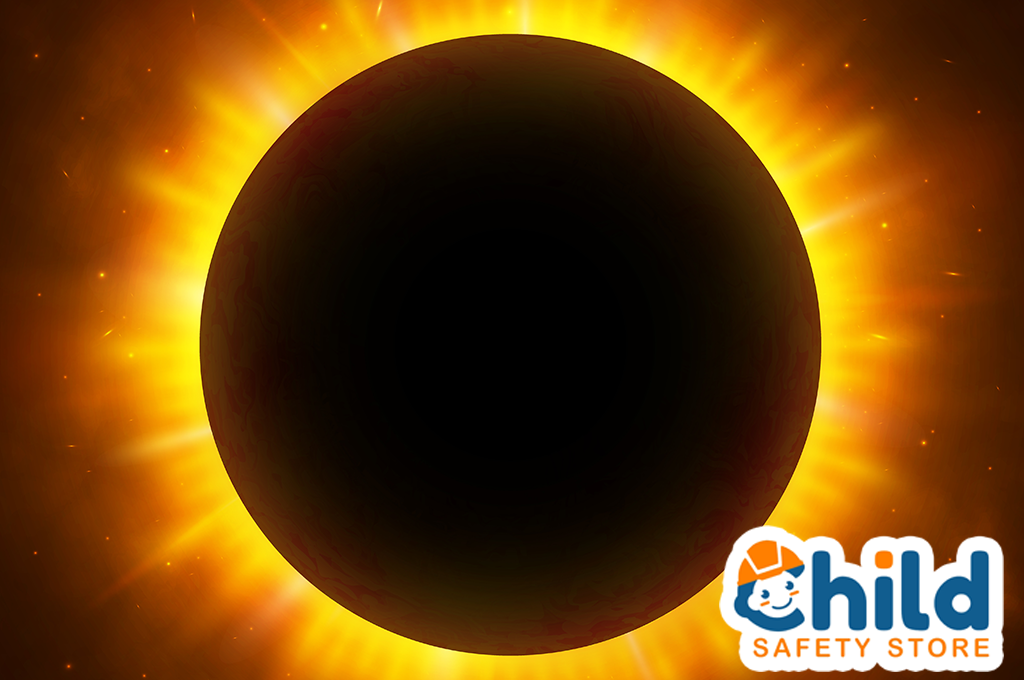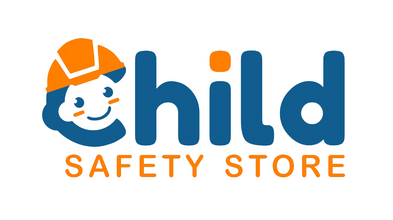
Tips to Keep Kids Safe During a Solar Eclipse
This week, some areas of the country will be treated to a celestial occurrence that only happens twice every three years: a total solar eclipse. On April 8, 2024, the moon will pass between the earth and the sun, causing an obstruction of the sun’s light.
Inevitably, parents will want to share this experience with their kids. That said, it can be quite dangerous to look directly at the sun during a solar eclipse. Keeping this in mind, how can we keep kids safe during a solar eclipse? Read on as we take a closer look.
Where Can I See Solar Eclipse 2024?
During a solar eclipse, the moon covers the sun, which casts a shadow on earth. This temporarily turns day into night in the regions along the path of totality. In this path, observers can witness the sun's outer atmosphere, known as the solar corona, glowing brightly around the dark silhouette of the moon.

This phenomenon will be visible in the southwestern United States, through the central United States, up into eastern Canada, and then across parts of Greenland and the North Atlantic Ocean.
Major cities that will be within the path of totality include Dallas, Texas; Indianapolis, Indiana; Cleveland, Ohio; Buffalo, New York; and Montreal, Quebec. If you don’t live in any of these areas, don’t fret! A partial solar eclipse–when only part of the sun's disk is covered by the moon–will be visible from a broader area as well.
Why Is It Dangerous to Look at the Sun During a Solar Eclipse?
According to NASA, the rods and cones in the human retina are very sensitive to light, and the sun is bright enough that looking at even a thin sliver of its light can still hurt your eyes. Unfortunately, this damage can be permanent.
Of course, that damage might not be immediately apparent. Instead, it can take several hours, or even several days, to fully understand the extent of the injury. This may include retinal burns, also known as solar retinopathy, distorted vision, and altered color vision.
Tips to Keep Kids Safe During a Solar Eclipse
Now that we know the basics, how can we keep kids safe during a solar eclipse? There are several steps you can take to ensure that your child has a fun time experiencing the event without injury.

Protective Viewing Glasses
Viewing glasses are not a trend; they are protective gear that prevents you from getting eye damage. That said, they are not all created equal. Make sure your viewing glasses meet the ISO 12312-2 international safety standard.
Active Supervision and Communication
One preventative measure is to simply explain to your kids about the potential dangers of looking directly at the sun. With this, you may encourage them to try on their glasses ahead of time so they know how to wear them properly. Even after arming them with this knowledge, it is a good idea to supervise them during the eclipse. Make absolutely sure that the kids are wearing their glasses and not staring at the sun without protection.
Alternate Options
If going outside to view the eclipse is not an option for you, there are several other things you can do to make this day special for your kids. One idea is to create pinhole projectors, which can provide children with a hands-on educational experience. It should be strictly noted however, that you should not use any homemade filters or improvised viewing devices to view the outdoor eclipse. Another option is to stay indoors and watch the live-stream instead.
Provide a Shaded Viewing Station
Creating a shaded area allows you to control the circumstances a bit more. Block the sunlight by placing canopies, umbrellas or blankets to block potential heat. This type of setup also ensures that children will keep away from other hazards while they are distracted, such as streets and bodies of water. Remember, everyone else, including drivers, will be distracted as well!
Make Sure to Note Any Symptoms of Eye Damage
While we will do everything we can to keep kids safe during a solar eclipse, it is also important to be aware of symptoms that indicate damage. For instance, blurry or loss of vision, sensitivity of light and watery eyes are all signs that you should seek medical attention from an eye doctor. By not seeking treatment, you could make the problem more serious. Remember, it's always better to err on the side of caution when it comes to protecting your eyes from the sun's harmful rays.
